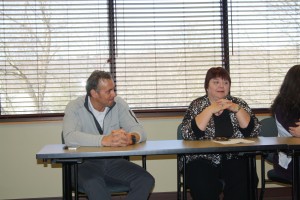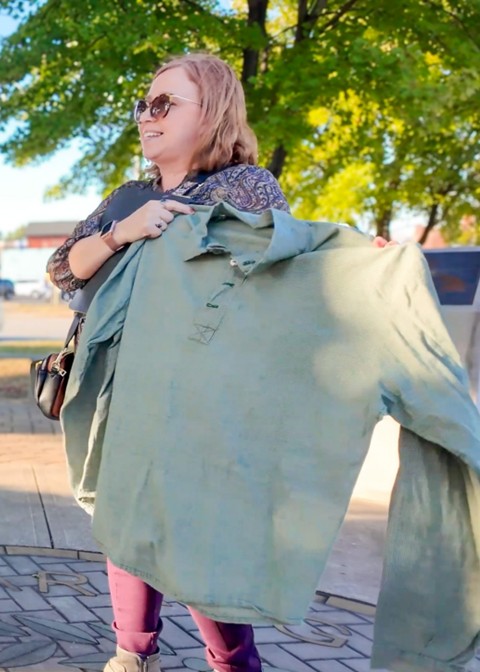In the 1999 classic movie “American Pie,” the main character, Jim Levenstein, was an awkward, confused and clumsy teenage boy whose father sat down with him to have “the talk.”Levenstein was horrified as his father showed him various pornographic magazines in an attempt to explain the female anatomy to him.
Thankfully, Indiana University Southeast students were able to bypass that awkward conversation and take their questions straight to the experts at the “Sex, Lies and Chocolate” panel.
The panel consisted of Kathleen Free, clinical professor of nursing; Michael Day, IUS personal counselor; Lucinda Woodward, assistant professor of psychology; and Douglas J. Breger, adjunct lecturer of anatomy.
Here are some of the questions that students wanted answered:
“How long should I wait before having sex with someone I like?”
Free said that some of her students recommend at least three dates, but she feels that number is just random and completely up to the individual.
Free said that some people wait until they are in a very committed relationship or until marriage and others are open with their sexuality and have sex very casually. She said either way is healthy and normal.
Day offered information from a survey on the concept of hooking up. He stated that people generally fall into four different quadrants.
Day said that some people look at sex as a recreational activity and are not emotionally involved at all. Some people are very emotionally involved in it and want a relationship afterward, and others are in between both. Members of a couple who are in different quadrants are more likely to get hurt.

“Most of my friends that are sexually active are surprised when they find out I’m still a virgin. How do I respond to the peer pressure?”
Woodward said that students must stay true to themselves, because peer pressure comes from every direction.
“It is about self-reflection and knowing what one is comfortable with,” Woodward said. “You have to stay true to yourself so if you have to lie, lie.”
Day said it is important to look at one’s own values and beliefs. He also talked about a book called “Manning Up,’ written by Kay S. Hymowitz, which encourages women to be more sexually liberated and less concerned with relationships. Day said that this type of thinking can create issues when a person is looking for a long term relationship.
“Can you get an STD in a hot tub?”
Breger said that a person is not going to get an STD just from sitting in a hot tub. Even if the person is sitting in a hot tub with someone who has an STD, it is virtually impossible.
Breger said that if one is engaging in sexual activity in a hot tub in or out of the water, they could contract an STD.
Woodward said that only direct contact would transmit STDs, and they would otherwise not survive in that type of environment.
“If you use a condom you can’t get any STD’s, right?”
Woodward said that was absolutely not right. Pubic lice, she said, can be transmitted even with a condom. She reiterated that honest dialogue between sexual partners is important.
Breger said that the Human papilloma virus (HPV) can be spread even with a condom, because it can live in the pelvic area or the inner thigh. So, it is possible to contract HPV by skin-to-skin contact.
“What body language means yes and what means no?”
“Don’t trust body language — it’s not consent,” Free said. “You really have to ask, no matter what point you are in a relationship.”
Day said that it is important to have honest open dialogue. He said it will deepen both the sexual and emotional connection.
“If you are trying to guess someone’s body language, you’re more likely to guess wrong,” Day said.
Day said that he has seen many couples in dysfunctional relationships simply caused by a lack of communication. He said that many couples are scared to even use the word “sex.”
“I just found out I have an STD; does that mean I can never have sex again?”
Woodward said no, but it can be very problematic. She said that even if they are infected, people need to be honest and open to their partners about their situation.
“I would say if you lie down with them, you can tell them about your situation,” Woodward said.
Day said that when someone has an STD, it is an extra burden and responsibility. He said that it is imperative that people are honest with any potential partner.
“If you are infected, you don’t want to hurt someone,” Day said.
Breger said that people with such diseases learn their stressors, and can tell when an outbreak is going to be triggered or when they are at higher risk.






